Beyond Identity vs traditional MFA
Traditional MFA: A false sense of security
Don’t settle for outdated authentication methods that slow users down and leave gaps in your defenses. Beyond Identity offers continuous, device-bound, passwordless MFA built for cyber defense.
Validating both users and devices continuously, as separate
but equally important requirements for risk-based authentication.
Single-point in time authorization of users only, oftentimes using phishable factors that can leave organizations open to risk.
Frictionless
Frictionless, single-step biometric login on the user's own device. No passwords, codes, or second devices.
Frustrating
High friction with passwords, OTPs, push notifications, and secondary devices that cause drop-off.
100% Phish-resistant
Uses device-bound, universal passkeys that cannot be stolen, shared, or replayed.
Vulnerable
Passwords, SMS codes, and push approvals can all be phished or socially engineered.
operation
100% Passwordless
Fully passwordless on any device and browser. No password in the user experience or stored in your database.
Relies on passwords
Password-dependent. Passwords remain a core attack vector and source of support burden.
Universal
Works on any browser, device, or app, even those that don't support FIDO2 WebAuthn.
Limited
Inconsistent experiences across platforms; some users left behind.
Low lift
Cloud-native, API-first platform with out-of-the-box CIAM integrations, easy-to-use SDKs, and hosted options.
High maintenance
Complex to build, manage, and scale across multiple authentication methods.
World-leading organizations partner with Beyond Identity


.svg)














.svg)












See the difference
- Unrivaled identity security that doesn’t compromise on performance.
- Faster threat-blocking at greater scale and with higher accuracy than humanly possible.
- More strategic and actionable insights that also help reduce spend thanks to Beyond Identity.


.png)
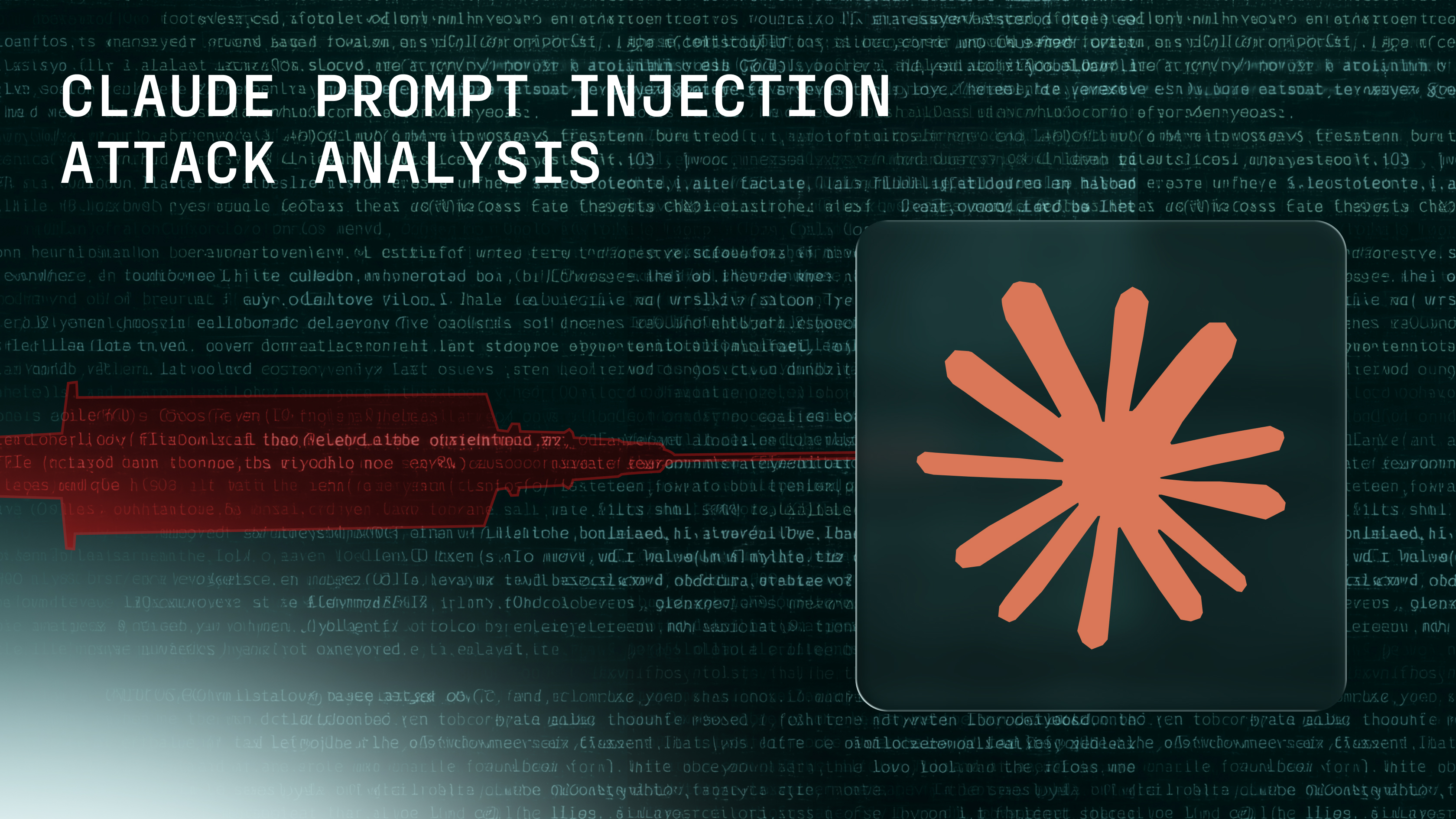
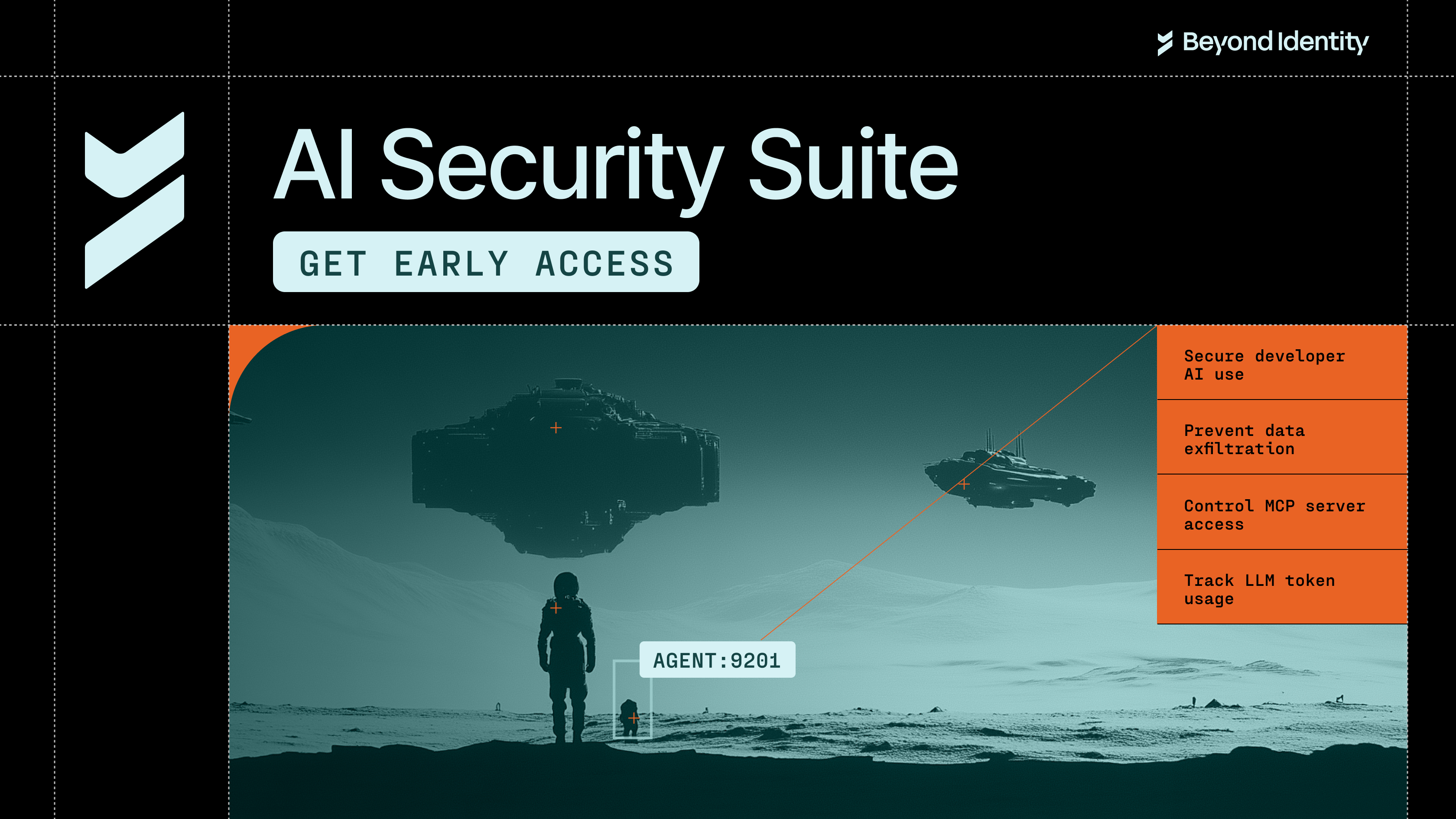
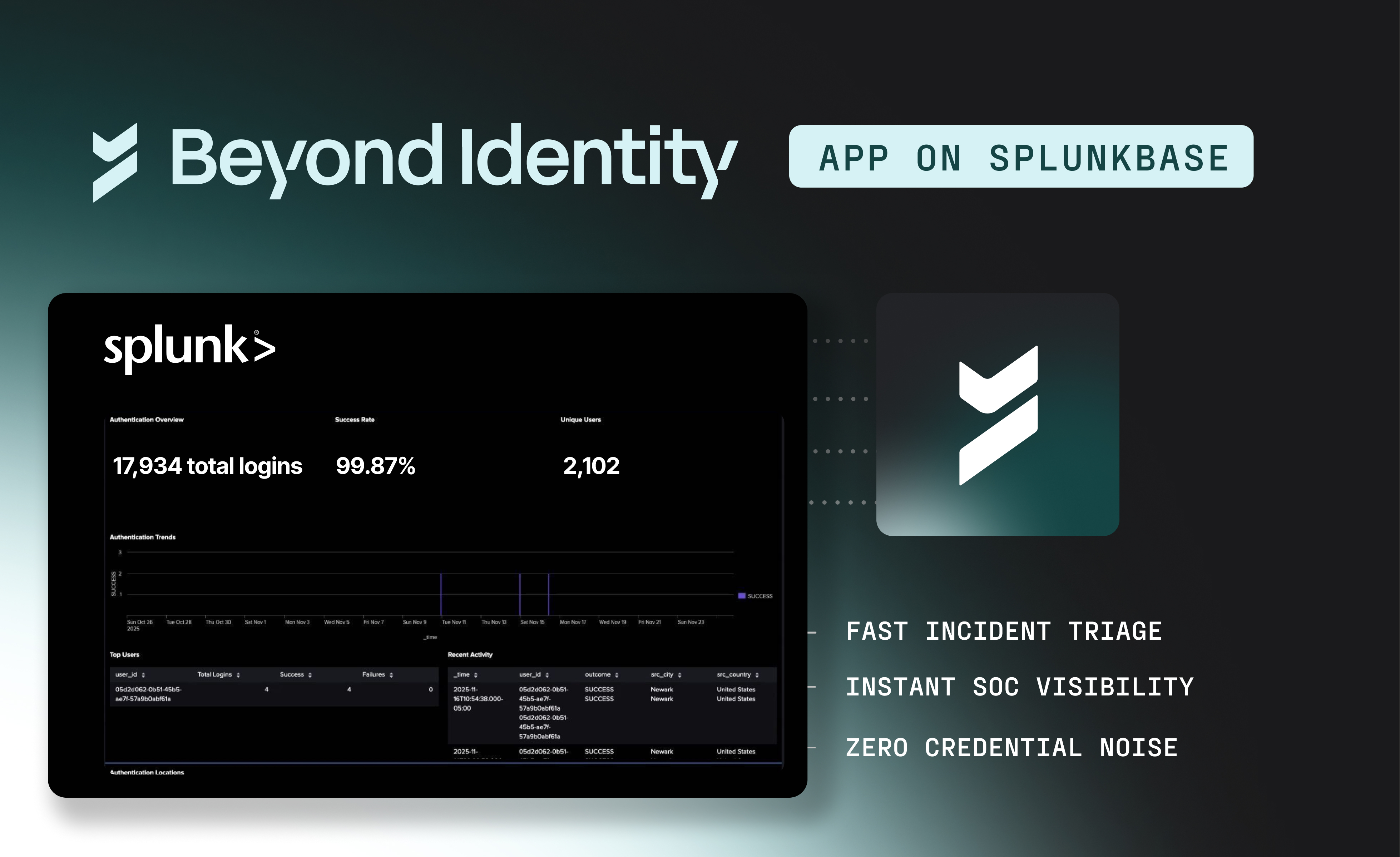
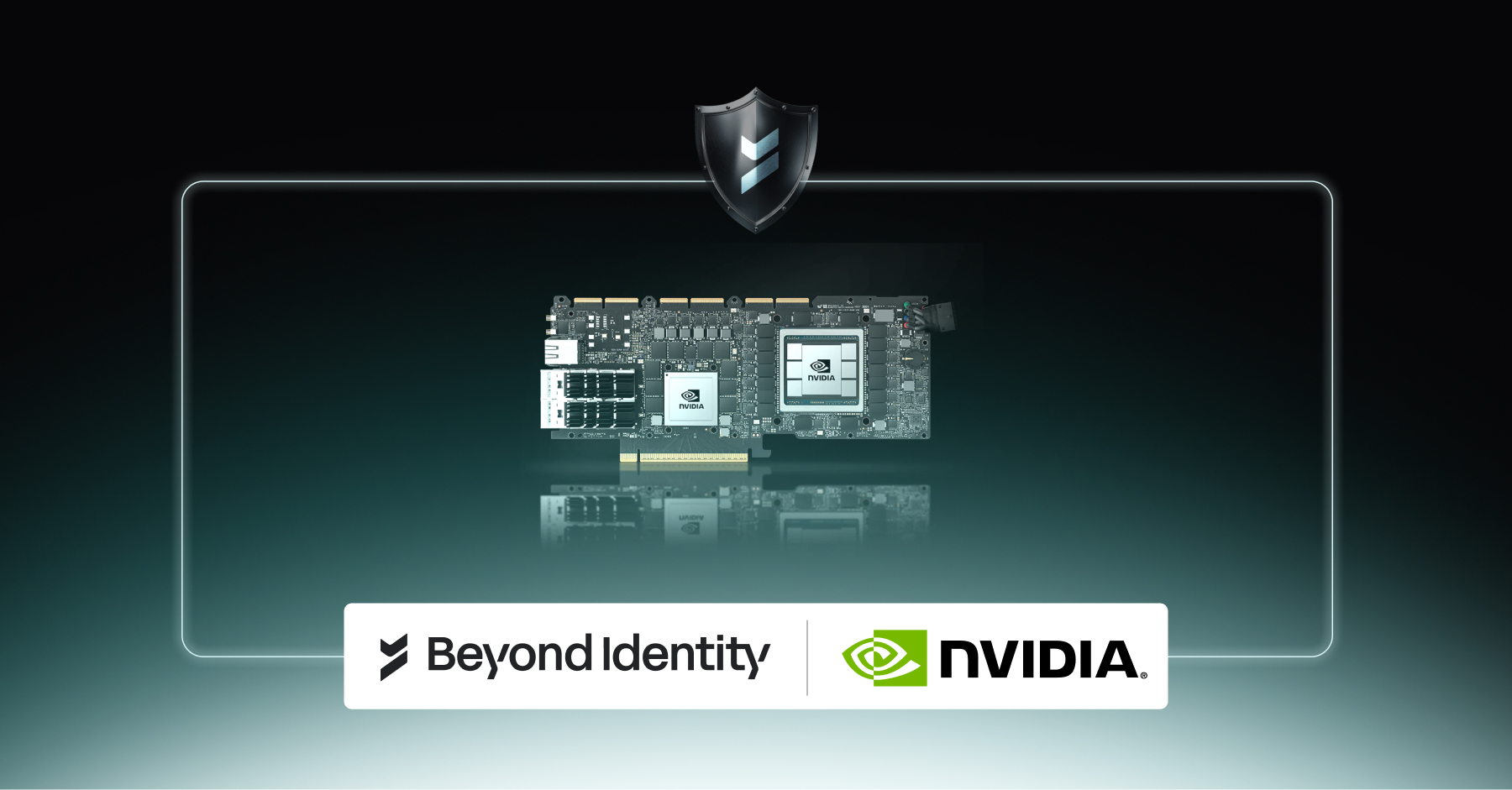


.avif)
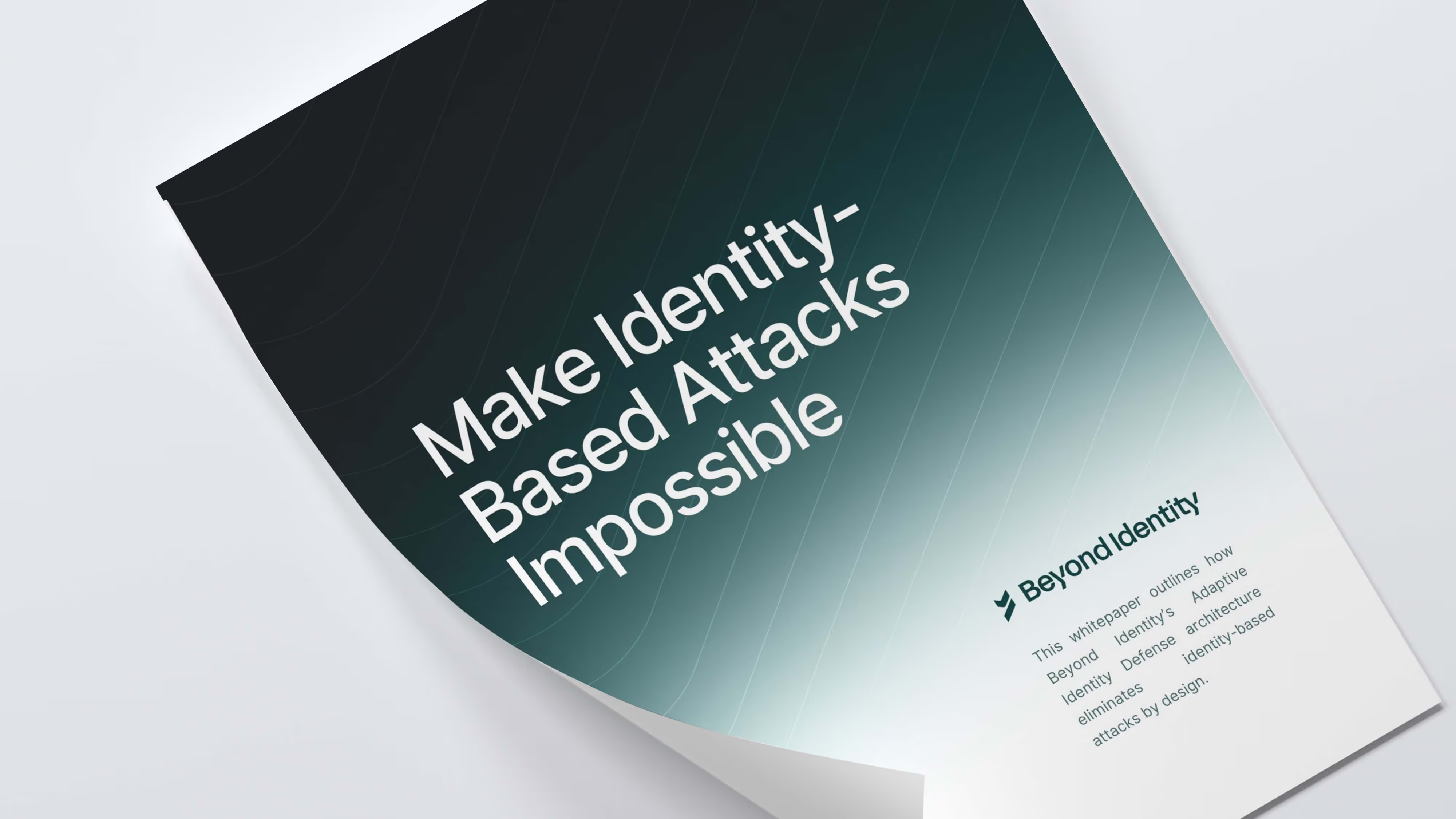
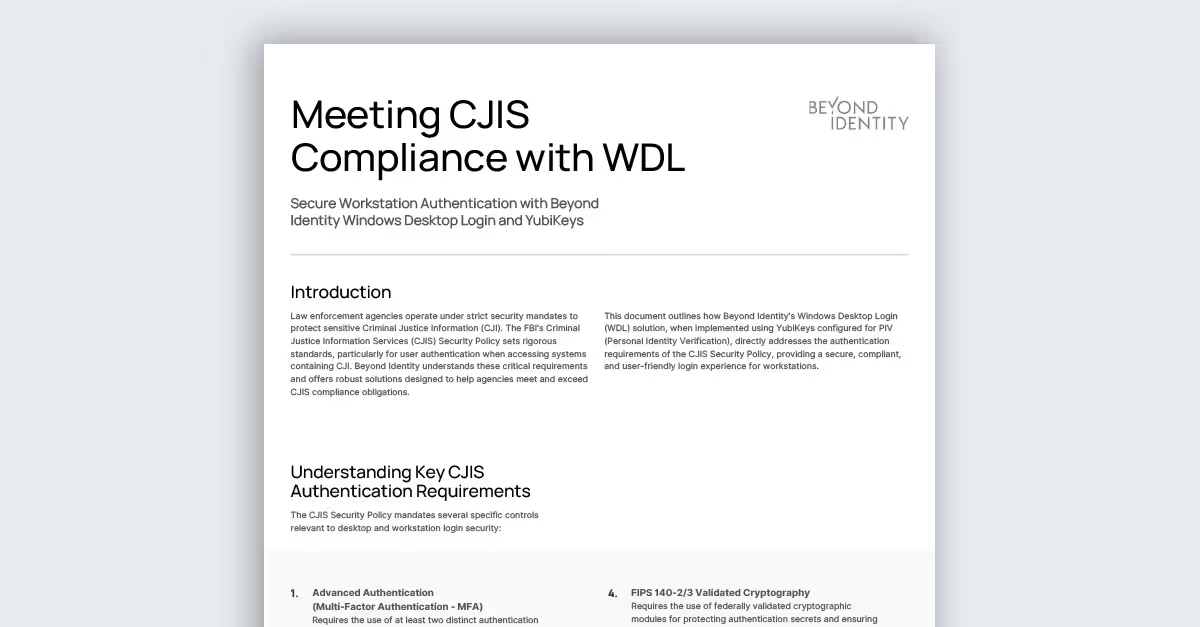
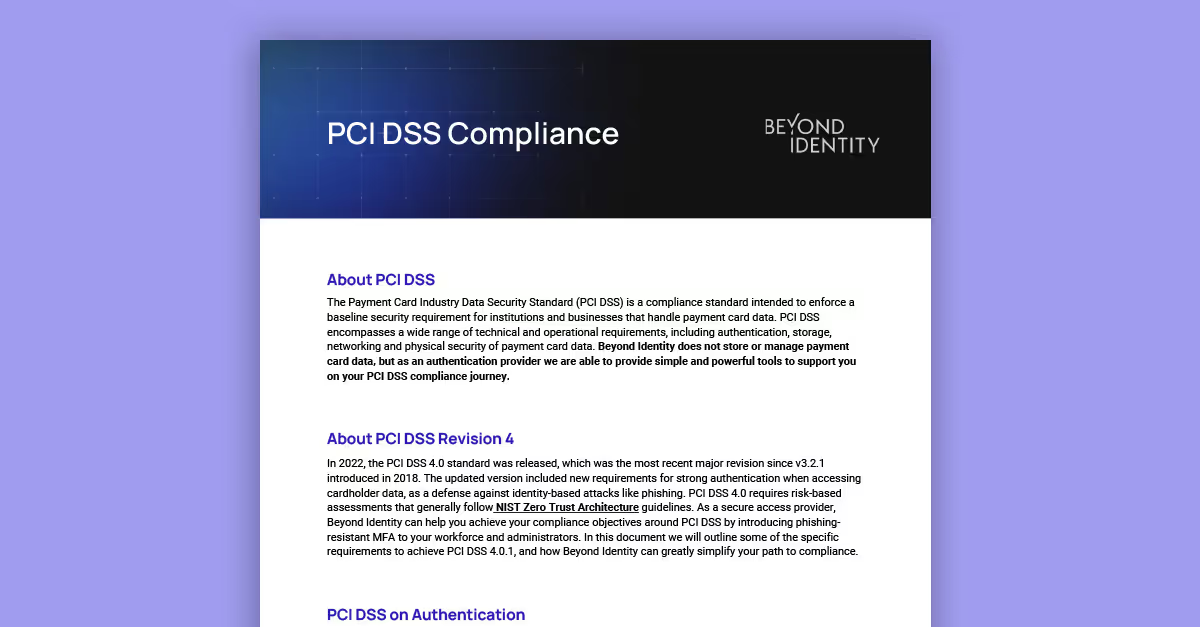
.avif)

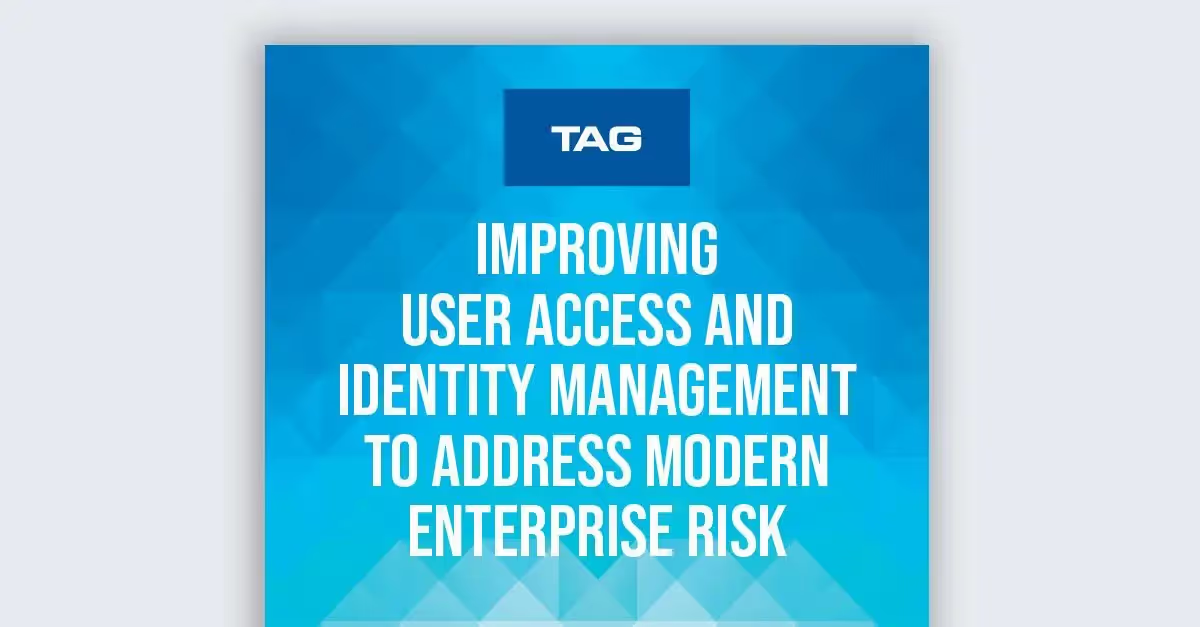




.avif)

